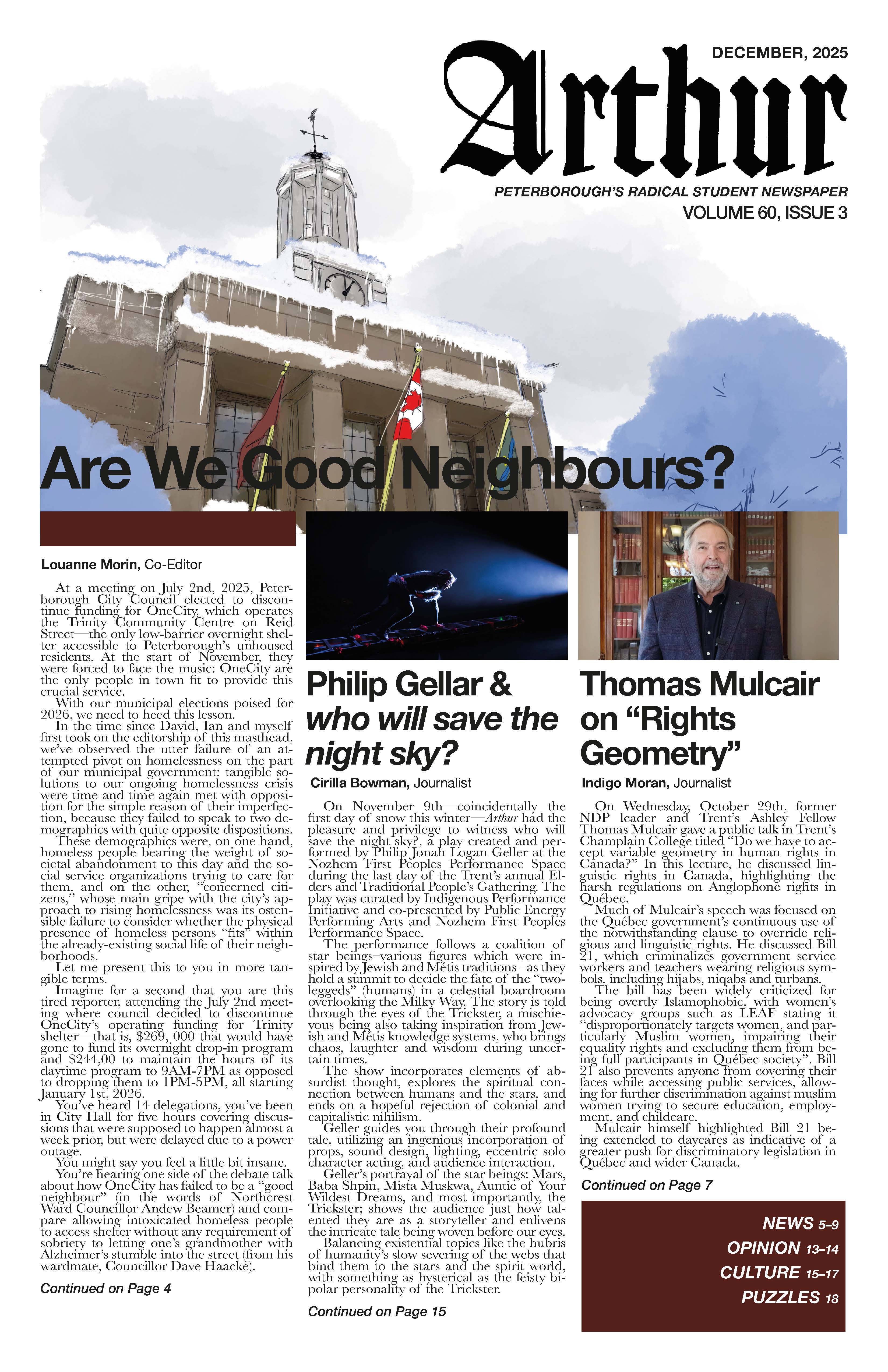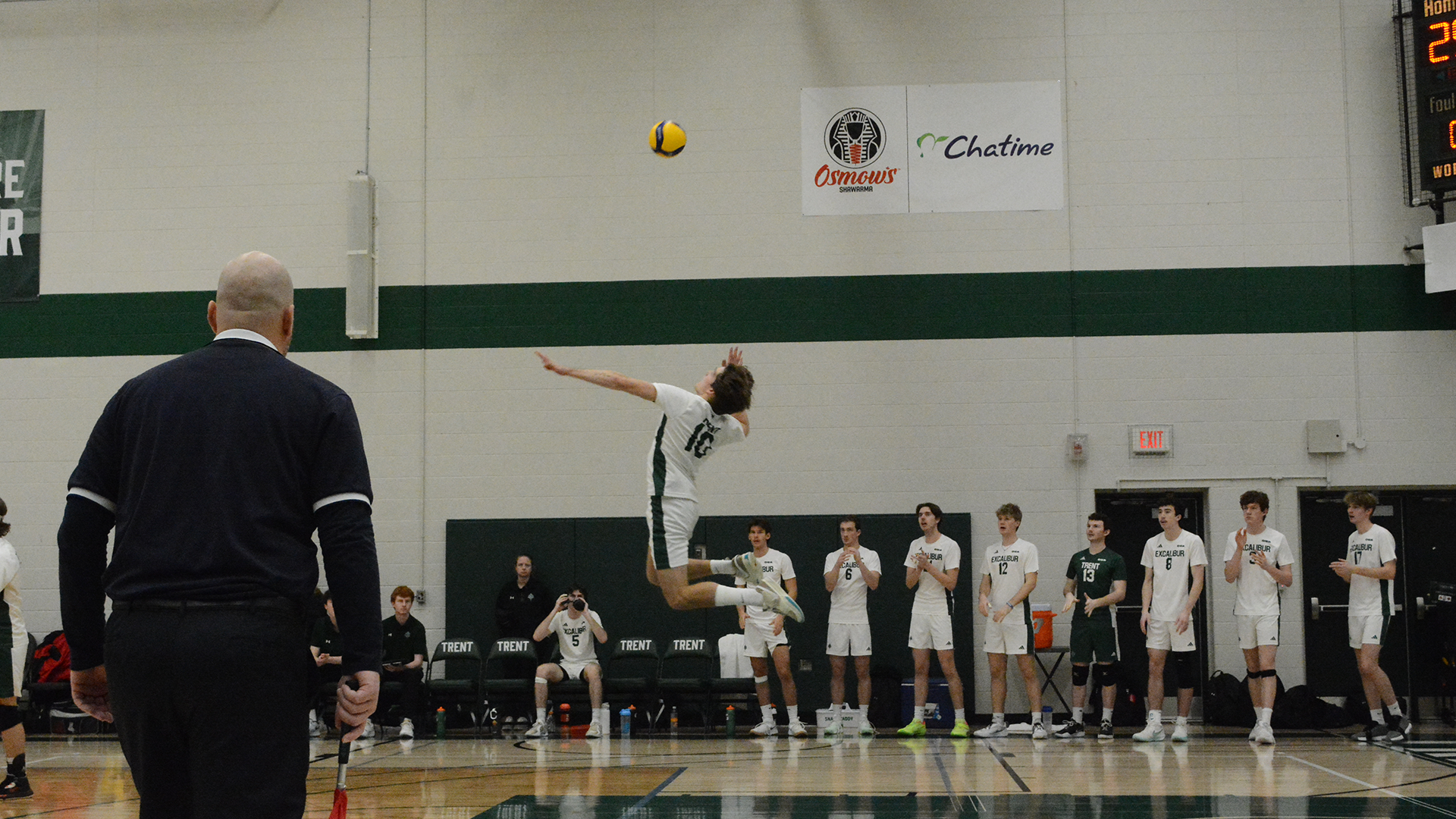Well, the time has come again for the austere body of financial professionals, lawyers, ex-cops, and entrepreneurs to meet in relative secrecy, free of accountability, and chart the course for the rest of us poor saps who find ourselves subject to their whim.
The Trent Board of Governors roared back into action for the 2022/23 academic year with another sputtering performance by Dr. Leo Groarke. He related to those in attendance that he had recently returned from a trip to Italy during which he had visited Trento University. This, it would seem, is the first step in his ultimate plan to create a “Council of Trent Universities” or, more accurately, Universities that have Trent somewhere in their name.
“To what end?” You may be asking yourself. Well, fair reader, here we are left to imagine. Nothing good, I expect. However, I must warn you that it is a dubious and ill-informed strategy to presume that Leo himself has any idea what he is talking about most of the time, and thus I would urge anyone reading to avoid such a pitfall at all costs.
Leo made a point of recognizing the uptick in COVID in Europe. He was quick to assuage our fears when he blankly stated that he didn’t notice it. I do not believe I was alone in my relief at realizing that our president’s self-absorption is not contingent upon geography.
It was at this point that Leo handed things off to what I’ve come to recognize as his VP du jour, Dr. Cathy Bruce. Trento, we came to understand, is interested in learning more about our Centre for Teaching and Learning. And frankly, that’s that.
With this, we got into the meat of the issues facing Trent. This being an extended and graphic accounting of certain events which unfolded over the homecoming weekend. Leo himself outlined the “very concerning behaviour of some of our students in downtown Peterborough” in a “very specific location on London Street.”
“People drank too much and behaved very badly. They yelled obscenities; urinated and defecated in people’s yards,” Leo said in a tone of forced contrition.
Leo’s rhetorical tact was on full display as he carefully absolved the university proper of any actual responsibility. He mentioned, with a questionable amount of pride, that the beer tent on campus was free of such scatological transgressions.
This year’s homecoming remains “a blemish on our relationship with the city” Leo told us while assuring the Board and attendees that they were cooperating with police and that already one person had come forward and been criminally charged with mischief and property damage-related crimes. The intellectually spry president then dispelled the Board’s concerns that Trent played a direct role in these events by noting that reports had shown a large number of high school students at the centre of this madness. No evidence was provided for this, but it certainly set some simple minds at ease.
It was at this point that Julie Davis, Trent’s VP of External Relations and Development, was called upon to clarify what Trent is doing to help make things right, even though it had nothing to do with anything, you got that?
Naturally, justice awaits those who admit to tipping cars or shitting in professors’ backyards, Davis said as she recalled the “hair-raising stories” of those community members who “went through Hell” over the course of the weekend.
Trent has a proud tradition of individualizing systemic issues and she assured us that this will not stop when it comes to addressing the problems associated with providing an express reason for students to gather and drink to excess on campus before spreading out across the city.
To this end, she noted the fact that some landlords apparently have threatened to evict students who throw homecoming parties. This seems heavy-handed and ill-advised until you consider the fact that Trent also refuses to acknowledge its role in the housing crisis in the city and gets a kick out of blaming homeless students for “bad choices.”
Fair to say, this played well with the Board.
A common refrain from Board members was that these same “bad choices” can and sometimes actually do result in costly criminal charges which can impact a person’s future ability to coach a children’s sport’s team, or *gasp* sit on certain governing boards. Cheeky!
One Governor piped up wondering how the university might dissuade future instances of this sort of noxious behaviour. There was a comment about how there is a “gap in the culture” and that social media is somehow to blame. One particularly adroit wordsmith of a Governor suggested we all might call it “antisocial media” to the wheezing amusement of many.
Another Governor pondered aloud that perhaps this all had transpired because of "the need to let loose” because who hasn’t openly relieved oneself in a public place and harassed seniors, young families and dogs as a means of casual relaxation?
Is this really the sort of deviant mind we want overseeing the operation of a university? It’s not for me to say. I’m just asking questions.
During an uncomfortable moment, Leo called upon the Acting Senior Director of Student Affairs, Lawrence Lam. Leo admitted out loud that he is still desperately trying to get Lam’s title right as the space for student affairs and the portfolio continues to be diluted and passed off to increasingly junior positions. After all, Leo has made it clear that Trent students have no affairs that concern this administration.
In the end, Leo’s final word on the subject expressed his true feelings: “Police should have been there much earlier,” he said. Leo Groarke and the fetishization of the thin blue line; Or, beer line? Semantics, really. The delineation may not make much of a difference in this sordid ongoing tale of a booze-obsessed philosopher and his shameless cronies.
After an hour on the topic, Governor Julian Smith provided an update on the audited financial reports. Trent remains solvent, luckily, and reported a 9.3% increase in tuition revenue beside a 2.6% increase in enrollment.
“Thank you, international students, for keeping this place afloat!” Board Chair Debra Cooper Burger yelped in response.
Naturally, I imagined that last bit. Hallucinated, more likely. No member of the Board of Governors would ever say something this honest lest they admit to the industry of exploitation they enable and are ruthlessly complicit in maintaining.
The meeting ended suddenly when Leo attempted to explain away why dozens of graduate teaching assistants had not been paid for over a month at the beginning of the term following a query by student Governor Daniel Palberg. The short answer is Trent fucked up, again, and tried to hide this fact until they got caught and had to admit it. The good news is that all our data is now super secure, which is why we all had to change our myTrent passwords.
Apparently, at some point in the closed session, the Champlain Report was approved by the Board. This sounds like a bigger deal than it is. The conclusion of the report sounds like an undergraduate’s approach to studying for a mid-term they missed two weeks ago which their earnest and patient professor has offered to reschedule.
“I might do something about it later, but until then I’m having too much fun drinking and shitting in strangers’ yards.”
Res ipsa loquitur.


.png)


.jpg)


.jpeg)



.jpg)


.jpg)



.jpg)




.jpg)


.png)